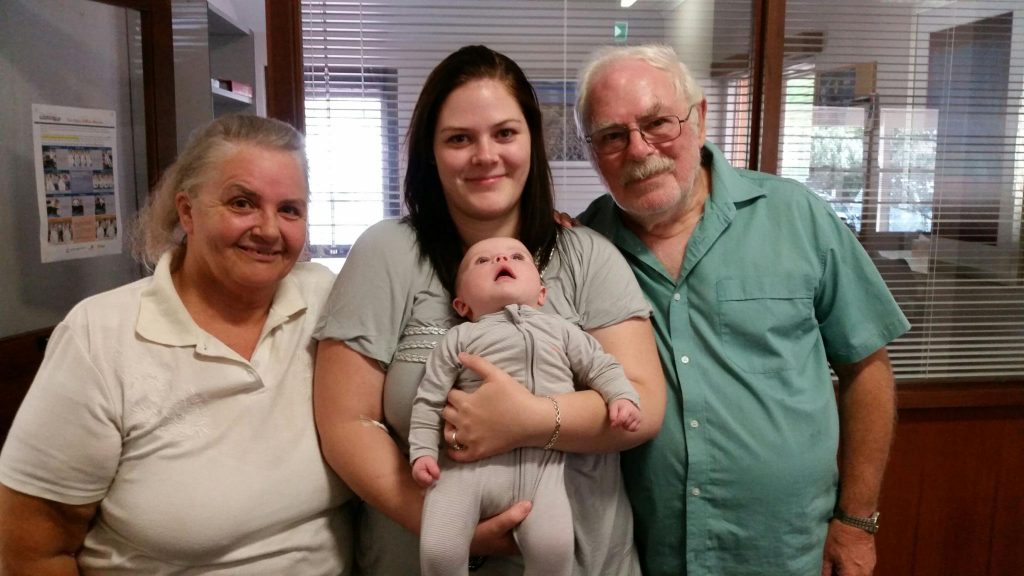Marisa Tucker has been part of the Raine Study her entire life, and when she and partner, Aaron, welcomed their first baby earlier this year, so strong was her association to the study, her new daughter earned the middle name of Raine.
The Western Australian Pregnancy Cohort (Raine) Study is one of the most extensive prospective and multi-generational cohorts of pregnancy, childhood, adolescence and now early adulthood to be carried out anywhere in the world.
It was established in 1989 and participants, such as Marisa, have volunteered their time to be part of the study for follow-ups as babies, toddlers, children, adolescents and now adults.
Most recently Marisa, and other members of the Raine Study “Generation 2” cohort, participated in their 27-year follow-up, which included a range of questionnaires, blood tests, urine samples, faecal samples, MRI scans, full body DXA scans, 3D imaging of their head and faces and more. All information collected through the follow-ups are compared to the same tests done in previous years and can be accessed by interested researchers from around the world.
Researchers are currently looking into many several specific health areas of study including gut health, vision, mental health, spinal pain, activity and sleep as well as work habits.
Marisa says the birth of her daughter, Araelia Raine, was the proudest moment of her life and that her middle name had been picked out well before she was born.
“The Raine Study is such a big part of my life and Raine is a beautiful name, so we knew it was one we would use when we had our first daughter,” she said.
“It also had special significance for my husband too, so when we first spoke about having a family almost four years ago and we both mentioned the name, it was a sign we just had to use it,” Marisa added.
Marisa said she loved being part of the Raine Study, as she felt she was helping make a difference to the health and well-being of the population.
“I really feel like as participants in a study like this we are making a difference in the world and I am proud to be part of it.”
Almost 500 research findings have been published using data from participants like Marisa, impacting policy and practice in health in children, teenagers and adults, including:
- Establishing the safety of ultrasounds and the standard for routine prenatal ultrasound scanning worldwide.
- Identifying genes associated with lung function, birthweight, puberty and language development.
- Finding that children who were breastfed for four months or longer had a healthier weight, had less asthma and allergies and less behavioural problems.
- Finding that teenagers who ate a Western diet (high in processed foods) have more behavioural problems than teenagers who have a healthy diet.
- Finding that a better quality diet in adolescence is also related to better school achievement.
- Finding that low vitamin D levels put children and teenagers at an increased risk for both allergy and asthma, and this affects boys more than girls.
- Finding that work absenteeism is identified as a significant issue for young adults and is associated with spinal pain and mental ill-health.
- Identifying trajectories characterised by participation in sports across childhood and adolescence predict better physical health in adulthood.
Meanwhile, the children of Marisa’s cohort who have turned two, are now members of the “Generation 3” cohort. Similar tests are being done on these children as were done on the original Raine Study cohort as part of key longitudinal data collection.
Marisa says she is excited for Araelia Raine to eventually be part of the Raine Study.
“Having Araelia involved will give me the chance to go through some of the same tests again with a new and completely different point of view.
“I know my Mum loved taking me to the studies and being part of them all too,” she said.

